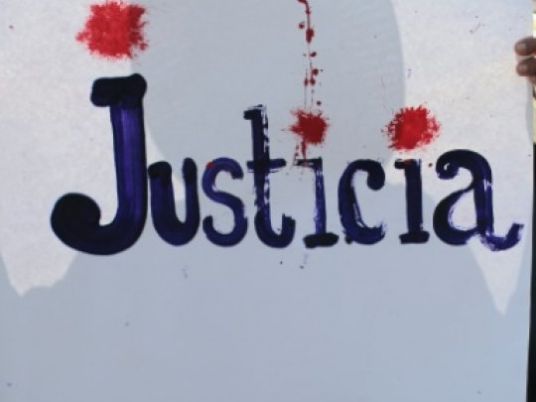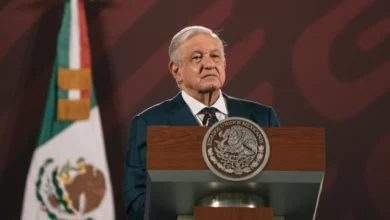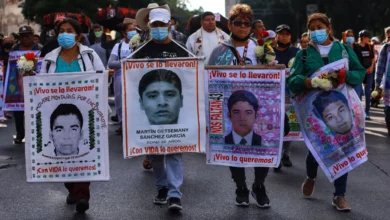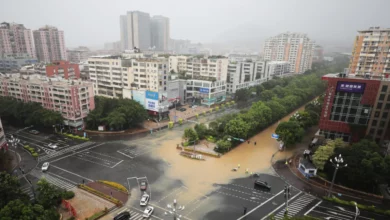
Jorge Sanchez decided to become a journalist when his father, the founder of a community newspaper, was kidnapped and murdered in January.
Now, as a wave of violence against reporters continues to sweep his home state of Veracruz — often called the most dangerous in Mexico for the news media — Sanchez fears he and many others could meet the same fate.
At least 11 Veracruz journalists have been killed in the past five years in the eastern state, leading Reporters Without Borders to rank it the third most dangerous place in the world to practice the profession, after Iraq and Syria.
Sanchez and his colleagues' fears have only grown since photojournalist Ruben Espinosa, who had fled Veracruz after being threatened and harassed, was found brutally murdered with four other victims in a Mexico City apartment on July 31.
"Sometimes you ask yourself, are they going to kill us all soon? Unfortunately, that seems to be the idea," Sanchez told AFP.
Clasping the upcoming issue of La Union, the newspaper launched by his father, the 29-year-old reporter said there appeared to be a campaign in the oil-rich state to "exterminate anyone who publishes anything that brings bad governance to light."
His dad, Moises, started La Union with his savings and kept it going by moonlighting as a taxi driver.
The paper took a critical look at officials Moises blamed for the decline of his hometown, Medellin de Bravo.
Moises was abducted from his home in January and found several days later with his throat slit.
The local mayor was accused of ordering the killing, but fled before he could be arrested.
Barbed wire, cameras
Now Jorge Sanchez has re-launched La Union.
He still lives in his father's house, which he has converted into a sort of bunker.
The two-story residence, which has no windows on the second floor, is surrounded by a security wall topped with barbed wire.
It is monitored by 12 security cameras connected to control centers staffed by interior ministry agents and state authorities, part of a protection program for at-risk journalists and activists.
State police stand watch outside 24 hours a day.
"Ironically," Sanchez says, this is the same police force that "didn't react" to his father's kidnapping.
But, he says, "living in fear is not an option" — a line his dad used to use.
That line will also appear in the upcoming issue of La Union, along with a page dedicated to Espinoza, who worked for the prominent news magazine Proceso and was a friend of Sanchez.
Espinosa was part of a group of people who rallied around the Sanchez family after Moises was kidnapped, storming into the Veracruz Congress at one point to demand action.
The late photojournalist, who was 31 when he died, also fought for justice in the killing of Proceso correspondent Regina Martinez, who was strangled in her home in 2012.
Wary text messages
Veracruz journalists and activists have demanded answers to the spate of killings from state Governor Javier Duarte, a member of President Enrique Pena Nieto's Institutional Revolutionary Party (PRI) who has faced accusations of threatening his critics.
One of those killed with Espinosa, Nadia Vera, was a rights activist who had accused Duarte of being behind the deaths of the 11 journalists killed since he came to power in 2010.
Investigators questioned Duarte this week on the killing of Espinosa and Vera. He denied any involvement.
The governor is at the very least "indirectly" responsible for the violence against journalists in Veracruz, because his administration has failed to stop it, said Jorge Morales, a member of a watchdog group that seeks to protect Veracruz's journalists.
"As long as there is no justice or change in the security situation, the murders aren't going to stop," he said.
Another correspondent for Proceso, Noe Zavaleta, related how he and his colleagues have taken to sending each other a constant stream of text messages whenever they go out on assignment, so someone will know if anything goes wrong.
With tears in his eyes, Zavaleta said Espinosa's murder was "a nightmare — one that you wish you could wake up from."




